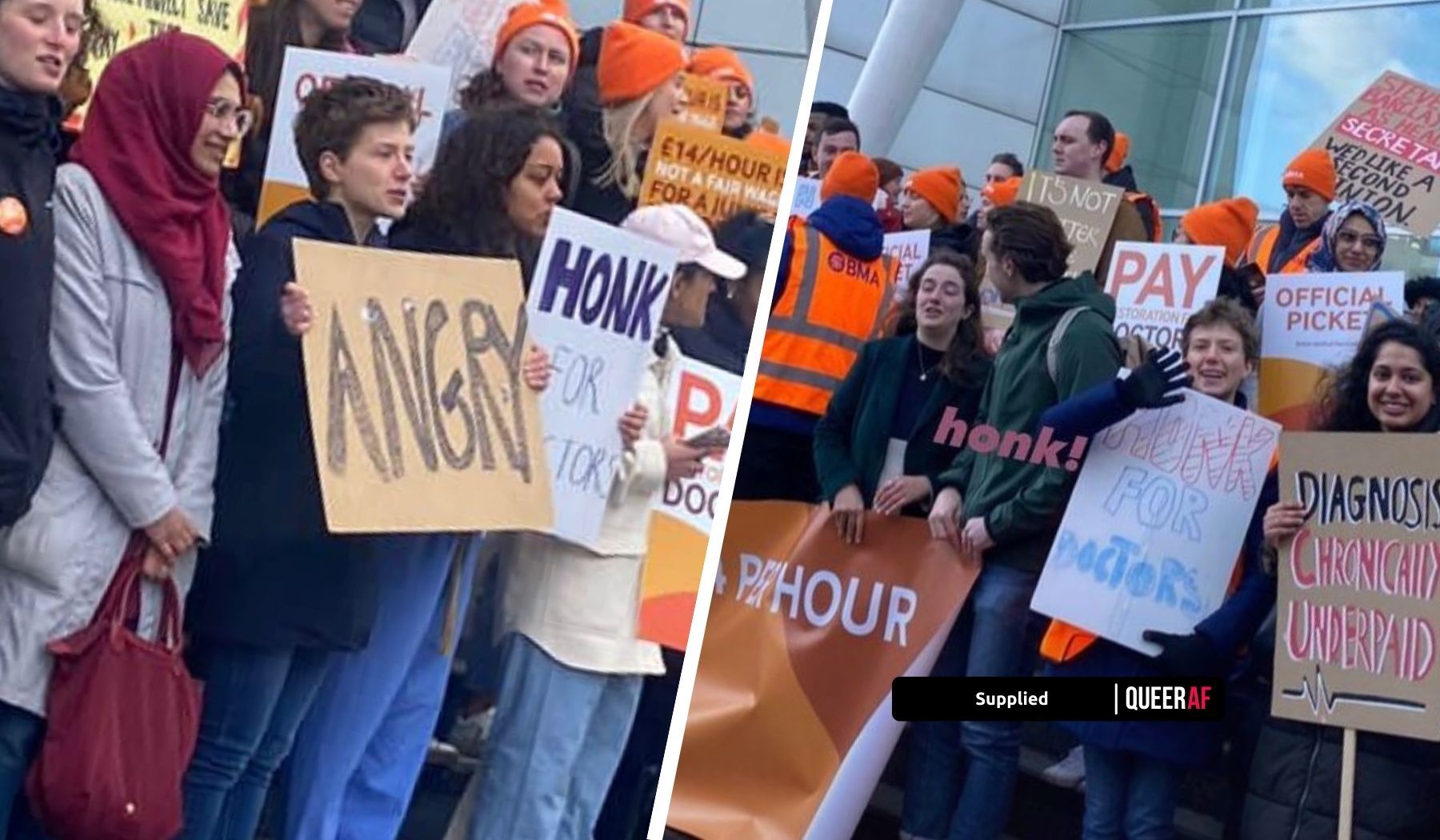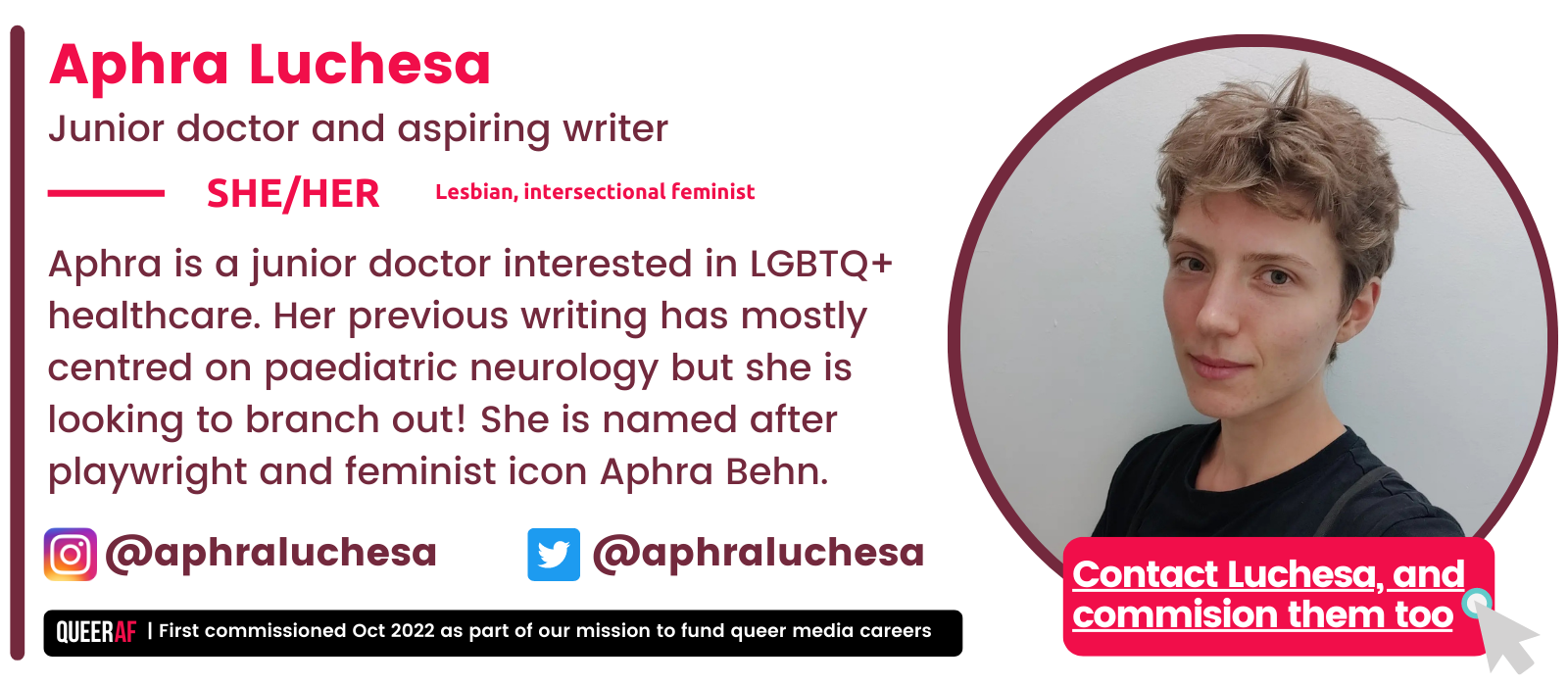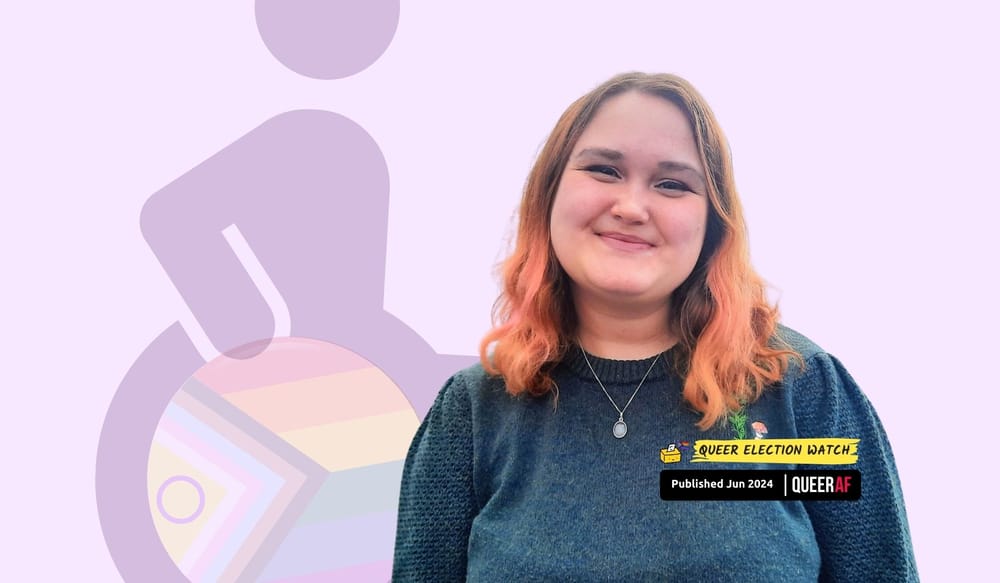
During my final year of medical school, a doctor advised me to hide my sexuality once I qualified.
It confused me - how could we make the NHS inclusive for LGBTQIA+ patients if it wasn’t even safe to be out at work?
I had mentioned my (female) partner in passing and this doctor warned me coming out would be a mistake. “The nurses will gossip and your life will be hell”, she said.
It felt like bad advice. I’ve rarely followed it. Sometimes, though, it’s easier not to correct colleagues.
Like the surgeon who advised me a surgical career wouldn’t “suit my husband and children”. It didn’t feel like a good time to announce my lesbianism, so I let it go.
These experiences aren’t the norm - 99% of my colleagues have never been anything but accepting - but they still stick with me.
If LGBTQIA+ NHS staff aren’t always able to be themselves at work, how can we expect patients to feel services are inclusive?
Many LGBTQIA+ people report prejudice and discrimination, which leads some to avoid seeking help.
Inequalities exist in many areas, especially when you look at the unique needs of different parts of our community.
Lesbian and bisexual women are more than twice as likely to have never had a smear test than women in general. 40% of trans people report negative experiences in healthcare settings.
There are inequalities in alcohol intake, physical activity levels, mental health, access to end of life services.

It can feel daunting, but I know change is possible. The campaign for PrEP (HIV pre-exposure prophylaxis) demonstrates how public engagement can bring about huge change.
The dedication of activists, research participants, healthcare professionals and scientists led to the enormous milestone of PrEP being made available for free in England in 2020.
We should take inspiration from these successes to tackle other inequalities.
Listening to patients ensures that services can be more inclusive and barriers surmounted. For example, the Trans Gap Project is asking the community to help shape grassroots research on trans healthcare, so that important issues can be identified and addressed.
Though it’s all the press seems to talk about, LGBTQIA+ healthcare is not limited to just sexual health or gender-affirming care.
We will likely all need the NHS at some point, whether it be for cancer treatment, having a baby, or for that strange rash that Google hasn’t helped to identify.
I take solace that we can tell the health service what changes we need to see, and that - as PrEP shows us - that kind of change is possible.

Get the Queer Gaze in your inbox each week with our free weekly newsletter or pitch to write an edition for us now.
Support Lesbian Creatives
This article was just one part of our free weekly newsletter that helps you understand the queer headlines and stay on top of the latest LGBTQIA+ content - all while we support queer creatives.
It's written by Jamie Wareham and a different queer creative each week. Hundreds of people trust us to give them everything they need to navigate the ever-changing queer world every Saturday morning. 🏳️🌈
We are an independent platform launching the careers of emerging and LGBTQIA+ creatives driven by people, not advertisers.
The Queer Gaze is our landmark scheme, commissioning, mentoring and running skill sessions with queer writers.
We rely on members to directly commission queer creatives. Jan Gooding's membership funded this article. She asked for content from Lesbians who accept trans women as women and about Lesbian issues at all life stages, and we delivered.
Join in to see your name published here and tell us what to make next.











